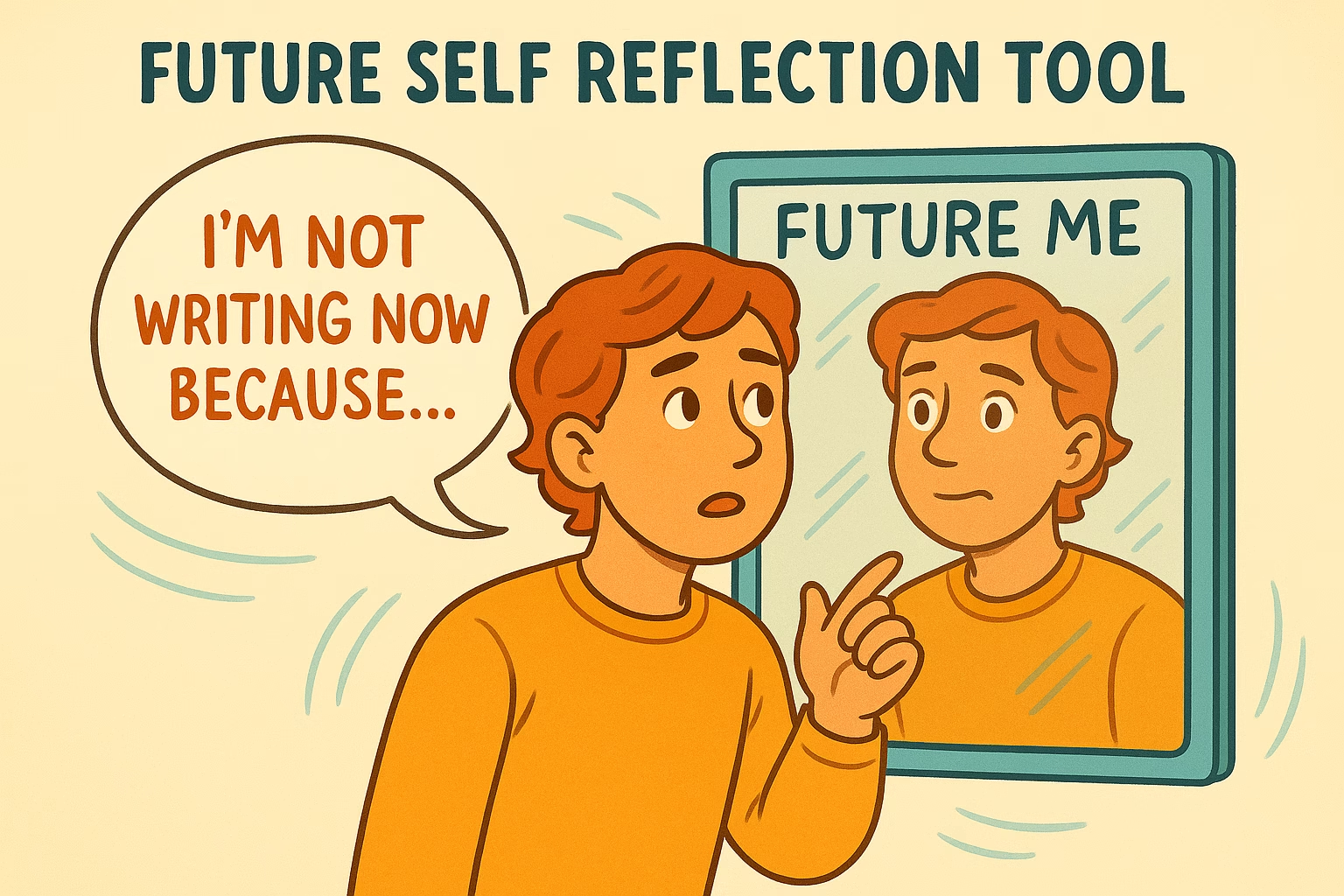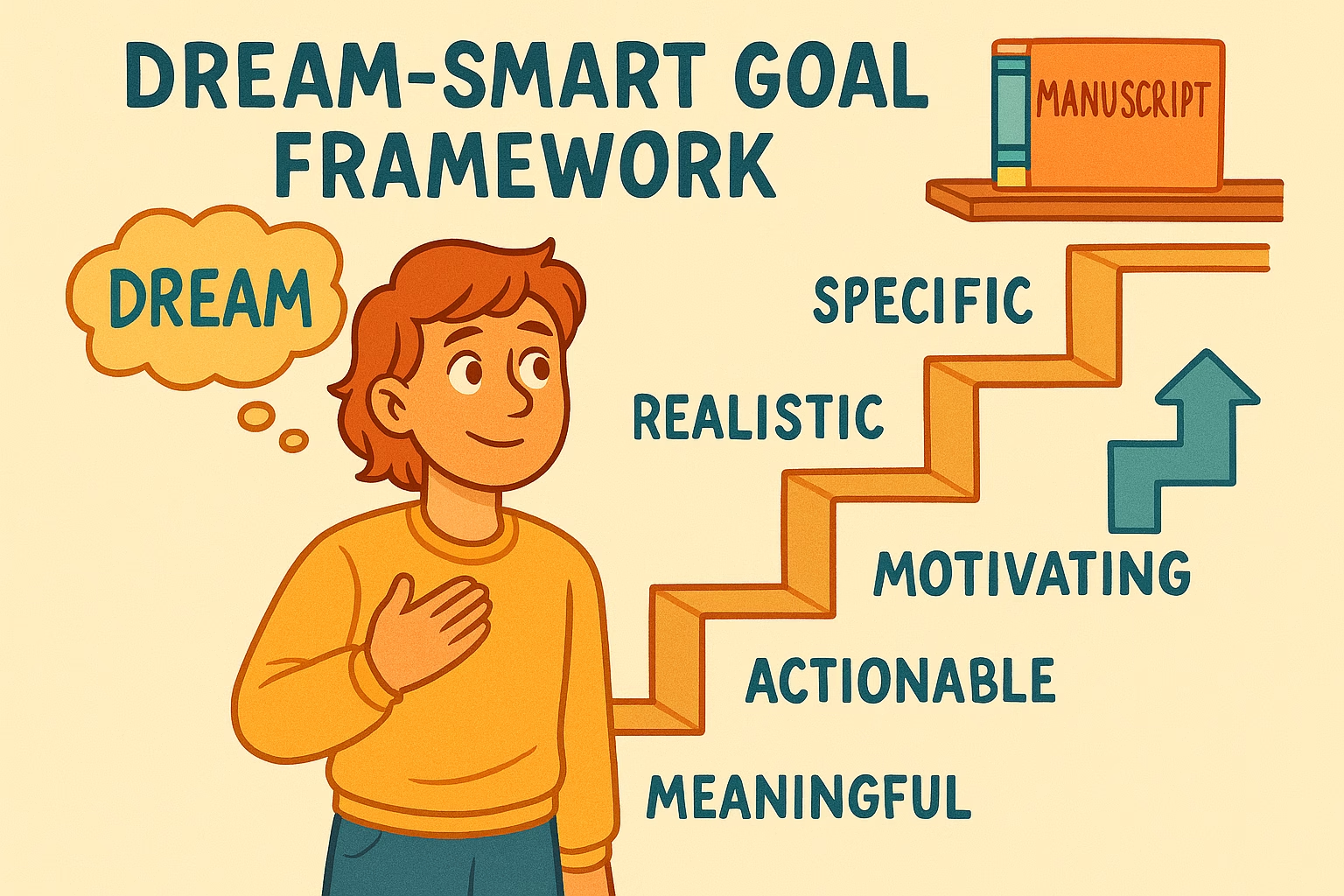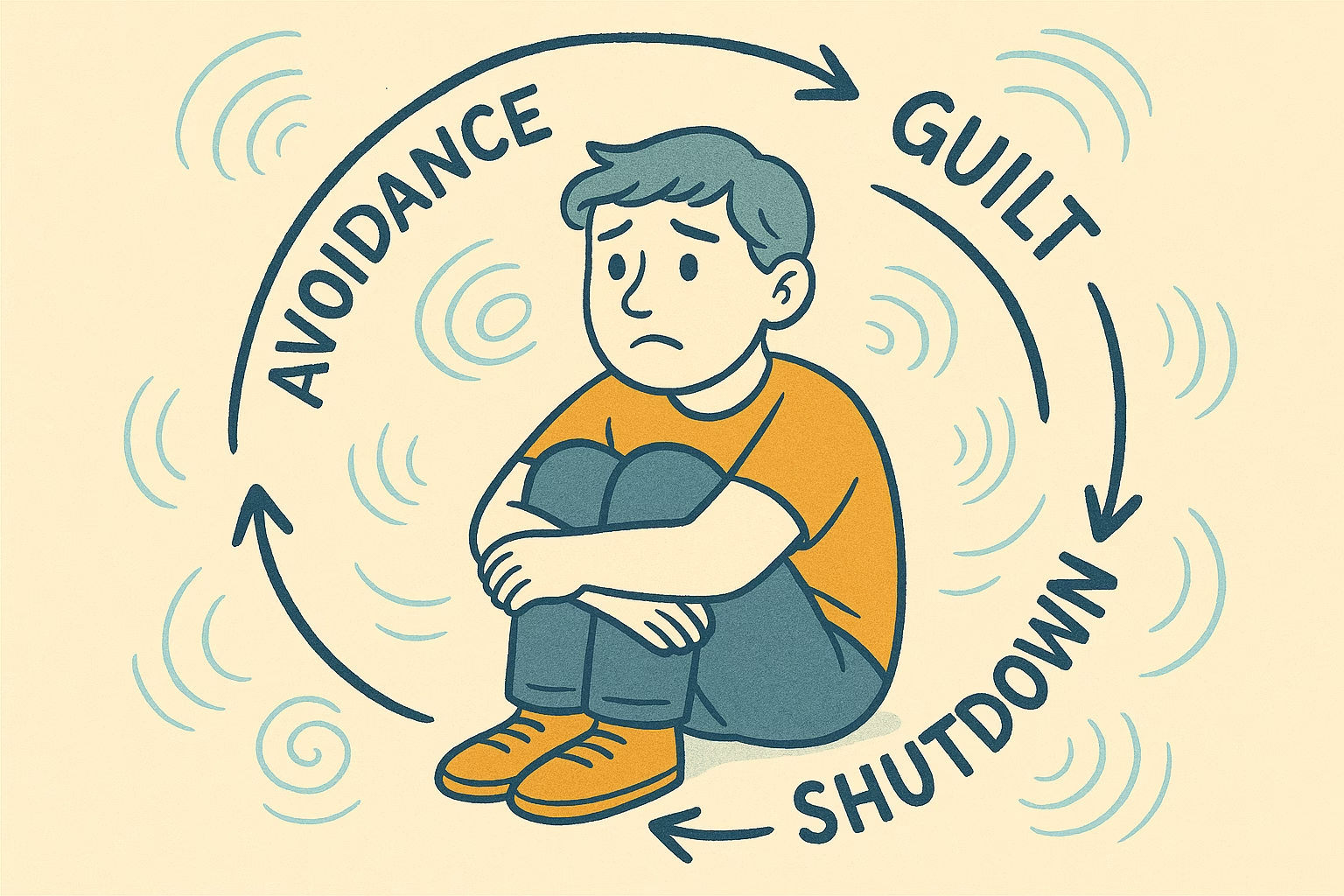Introduction
In the first half of their ADHD coaching journey, DS—a creative adult client—has explored the core emotional and behavioural patterns affecting their ability to pursue long-term goals, specifically a long-held ambition to write and publish a book. Like many adults with ADHD, DS presents with high insight, deep introspection, and a desire for meaningful structure, but often struggles with sustained execution, self-trust, and emotional regulation.
This article explores the key ADHD-linked difficulties DS reported and details the coaching-based strategies introduced to support growth and resilience.
Core Difficulties Discussed by the Client
Across the five sessions, DS’s experience revealed several overlapping ADHD challenges. These can be grouped into five core themes:
1. Inconsistent Momentum
DS expressed difficulty maintaining rhythm in tasks, especially after emotional or logistical disruptions (e.g., family travel, personal stress). The momentum loss was often followed by shame and avoidance.
“I can have a strong start but I fall off easily—and then getting back is harder than starting.”
🔗 Related ADHD Executive Function Domains: Task initiation, sustained attention, emotional regulation.

2. Avoidance & Procrastination Loops
Periods of intense procrastination were reported, sometimes masked as hyperfocus on low-priority tasks (e.g., watching YouTube until 6 AM). These patterns tended to emerge during emotionally charged periods.
“I know I should go to bed, or write… but I keep clicking, almost to numb the stress.”
🔗 Related ADHD Trait: Emotional dysregulation triggering avoidance behaviours.
3. Productivity Guilt & Shame Spirals
DS reported intense self-criticism following missed actions or plans, resulting in further avoidance and difficulty resuming.
“If I don’t do something perfectly, I feel like it wasn’t worth starting.”
🔗 Related ADHD Trait: Rejection Sensitivity and all-or-nothing thinking.
4. Perfectionism & Internal Pressure
Perfectionist expectations, driven by internal saboteurs (Stickler, Hyper-Rational), created friction even in tasks DS enjoyed—such as creative writing.
“If it’s not going to be good, I don’t want to waste time doing it.”
🔗 Related ADHD Pattern: Paralysis due to fear of failure or subpar output.
5. Emotional Exhaustion from Overthinking
DS often experienced cognitive fatigue from replaying decisions or questioning task value, even when time was available.
“Even when I have a whole day, I can’t get myself to do the thing I said I wanted to do.”
🔗 Related ADHD Trait: Executive function overload and analysis paralysis.
ADHD Coaching Strategies Introduced
Throughout the sessions, coaching interventions focused not just on productivity—but on building self-trust, reframing internal narratives, and restoring emotional balance. Below are the primary strategies used.

Strategy 1: Dream-SMART Goal Setting
Issue Addressed: Inconsistent follow-through and perfectionism
DS’s goal to complete a manuscript was broken down using a coaching-adapted version of the SMART framework (Dream-SMART), which includes emotional relevance alongside structure.
Coaching Actions:
- Weekly goal: 500+ words, 4x/week
- Milestone: Storyboard scenes using post-its
- Emphasis on Momentum over Mastery
ADHD Coaching Insight:
Traditional SMART goals can feel rigid or unrealistic for ADHD brains. Dream-SMART reframes goals around values and progress rather than outcomes.
Strategy 2: Saboteur & Strengths Mapping
Issue Addressed: Negative self-talk, avoidance, emotional dysregulation
DS completed a Positive Intelligence Saboteur Assessment and VIA Strengths Survey, identifying Avoider, Restless, and Stickler as key saboteurs, and strengths like Perspective, Humour, and Bravery.
Coaching Actions:
- Naming saboteurs in real-time (“That’s my Avoider talking…”)
- Actively choosing a strength to guide next steps
- Developing a Saboteur Journal for reflection
ADHD Coaching Insight:
This self-awareness approach empowers clients to separate themselves from reactive patterns and instead lean into inner strengths for support.
Strategy 3: “Future Self” Verbal Reflection
Issue Addressed: Task avoidance and unconscious derailment
To combat impulsive avoidance, DS was encouraged to speak aloud to their “future self” before making a choice:
“Future DS, I’m not writing right now because I’m feeling overwhelmed…”
Coaching Actions:
- Built mid-task awareness
- Reduced shame by increasing intentionality
- Developed stronger internal decision dialogue
ADHD Coaching Insight:
Verbal strategies externalise internal thoughts and help break automatic cycles by injecting conscious choice.
Strategy 4: Low-Barrier Entry & Bad Drafts on Purpose
Issue Addressed: Perfectionism and difficulty starting tasks
To reduce friction, DS was coached to:
- Lower entry barriers (e.g., write 200 words instead of 500)
- Intentionally write “bad” drafts to disrupt perfectionist paralysis
- Pre-select writing prompts or scenes the day before
ADHD Coaching Insight:
Reducing activation energy and reframing success metrics makes it easier for ADHD clients to initiate tasks without overwhelm.
Strategy 5: Rest as a Legitimate Need, Not a Reward
Issue Addressed: Shame around rest and burnout
DS often delayed rest until after productivity, leading to guilt or emotional shutdown when unable to perform.
Coaching Actions:
- Reframed rest as part of the workflow
- Created routines that included planned downtime
- Explored sleep hygiene (including use of melatonin or calming supplements)
ADHD Coaching Insight:
Rest is not laziness. For ADHD clients, proactive rest is a tool to manage dysregulation and prevent burnout cycles.
Reflections and Progress
Though DS has not consistently met every writing target, progress is clear in their:
- Increased self-awareness of emotional and behavioural patterns
- Willingness to experiment with new tools and ideas
- Reduced internal judgment and improved emotional regulation
- Reframed expectations and deeper understanding of motivation
This coaching work is less about checking boxes and more about building a foundation for sustainable self-leadership. DS’s progress demonstrates the powerful impact of compassionate, reflective ADHD coaching.
Conclusion
DS’s experience mirrors that of many adults with ADHD—deep internal worlds, high sensitivity, and cycles of hope and derailment. Through coaching, they are learning to shift from shame to self-trust, from stuck to starting, and from pressure to presence.
Their journey so far reveals a core truth of ADHD coaching: awareness is not enough—what matters is how awareness is used to shape new patterns of choice and self-support.

